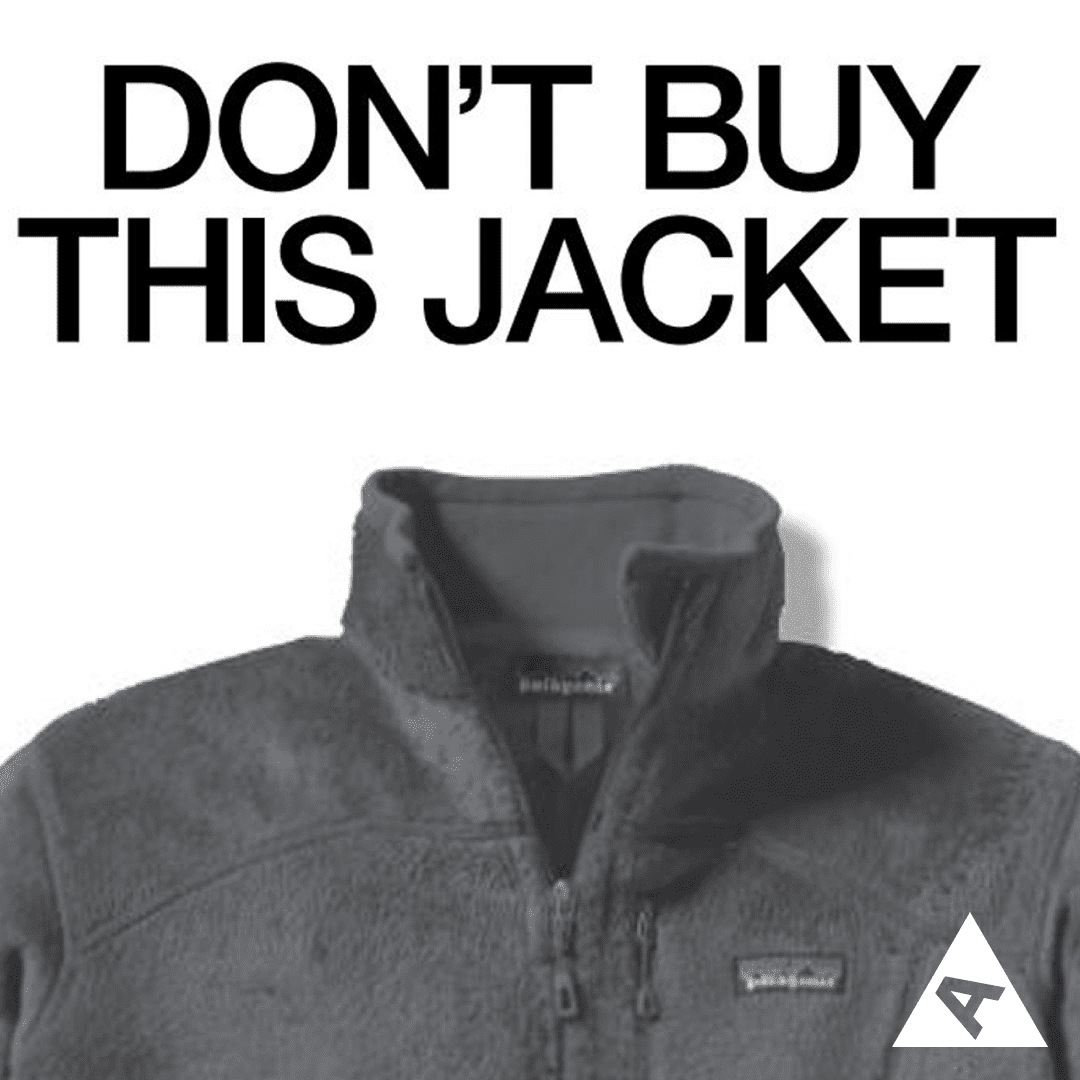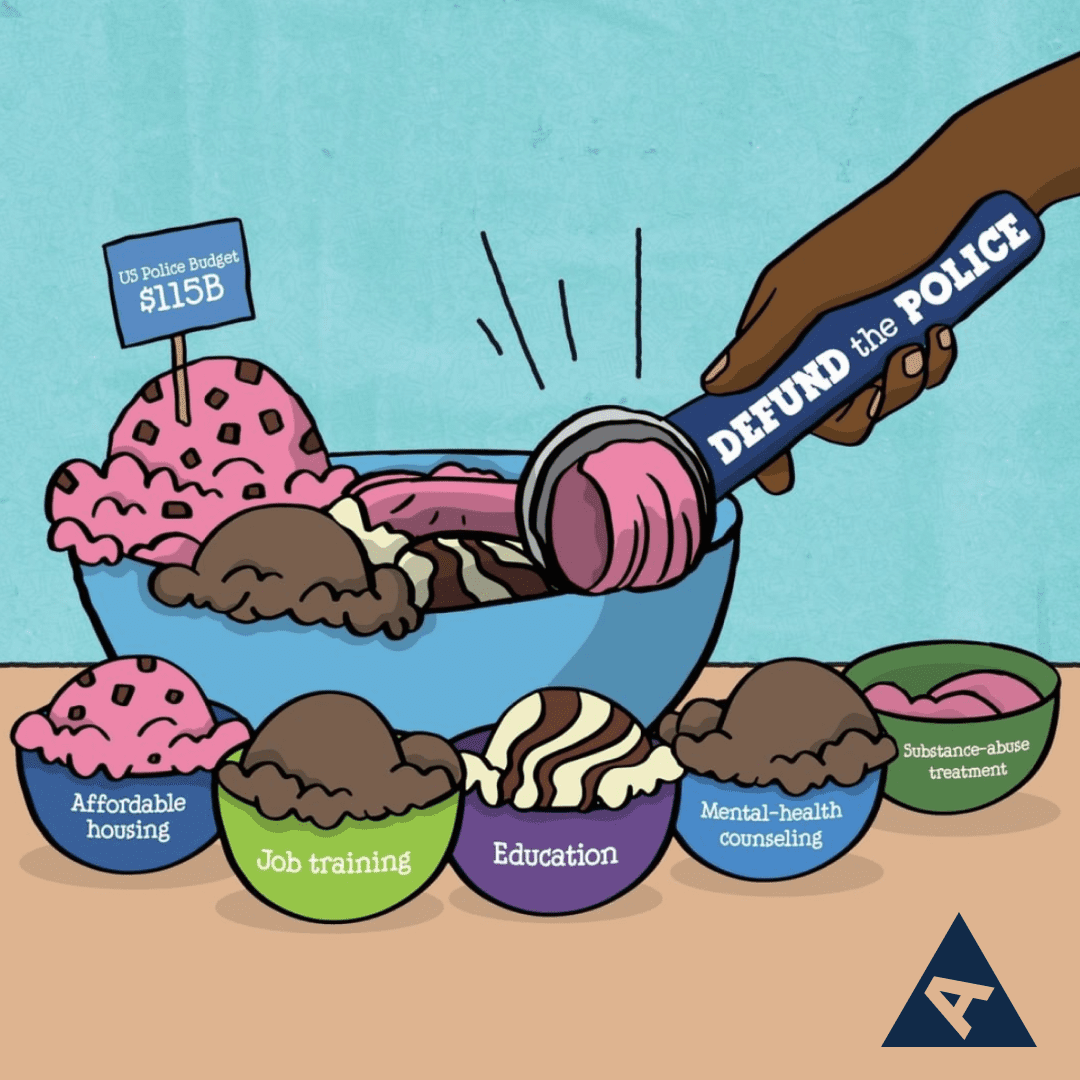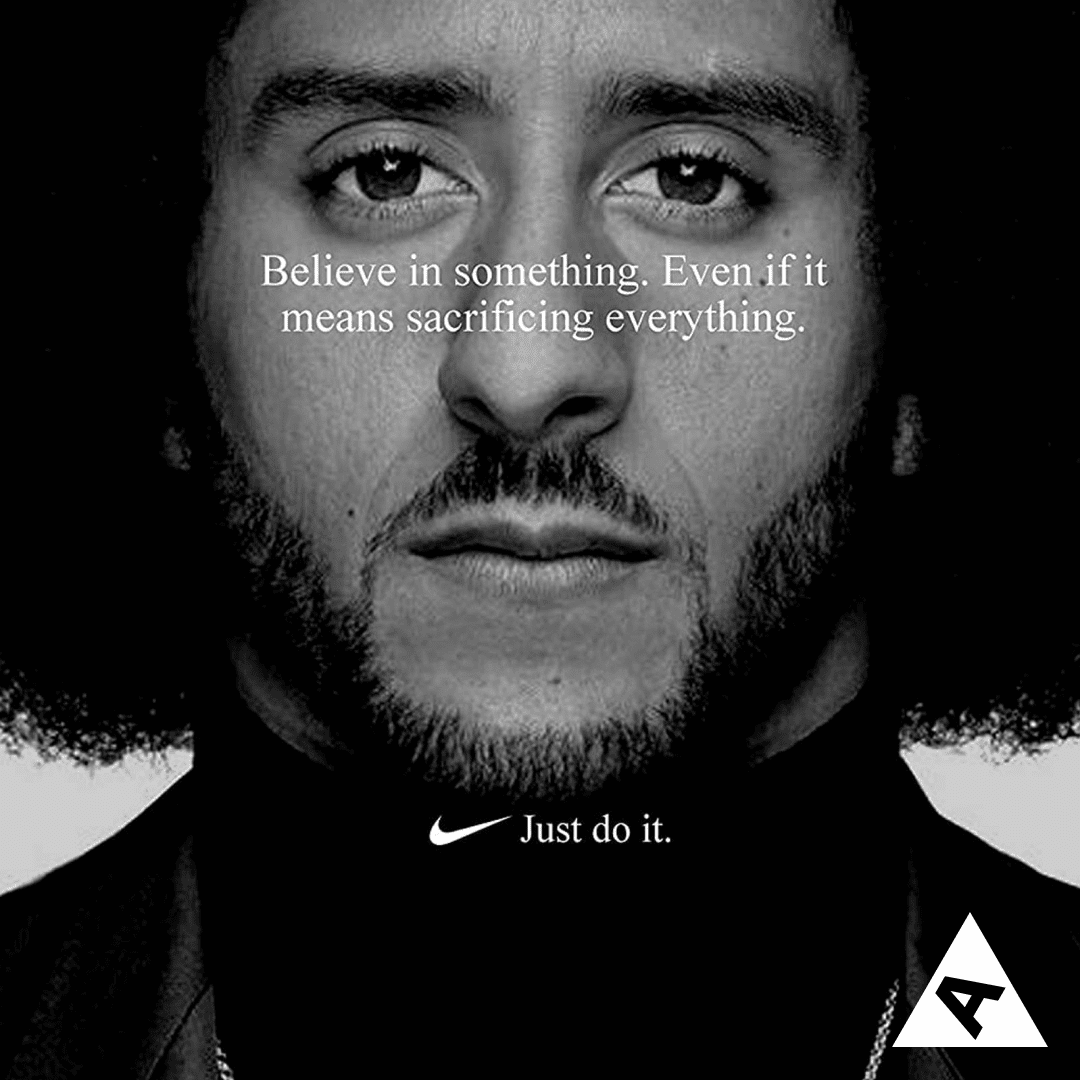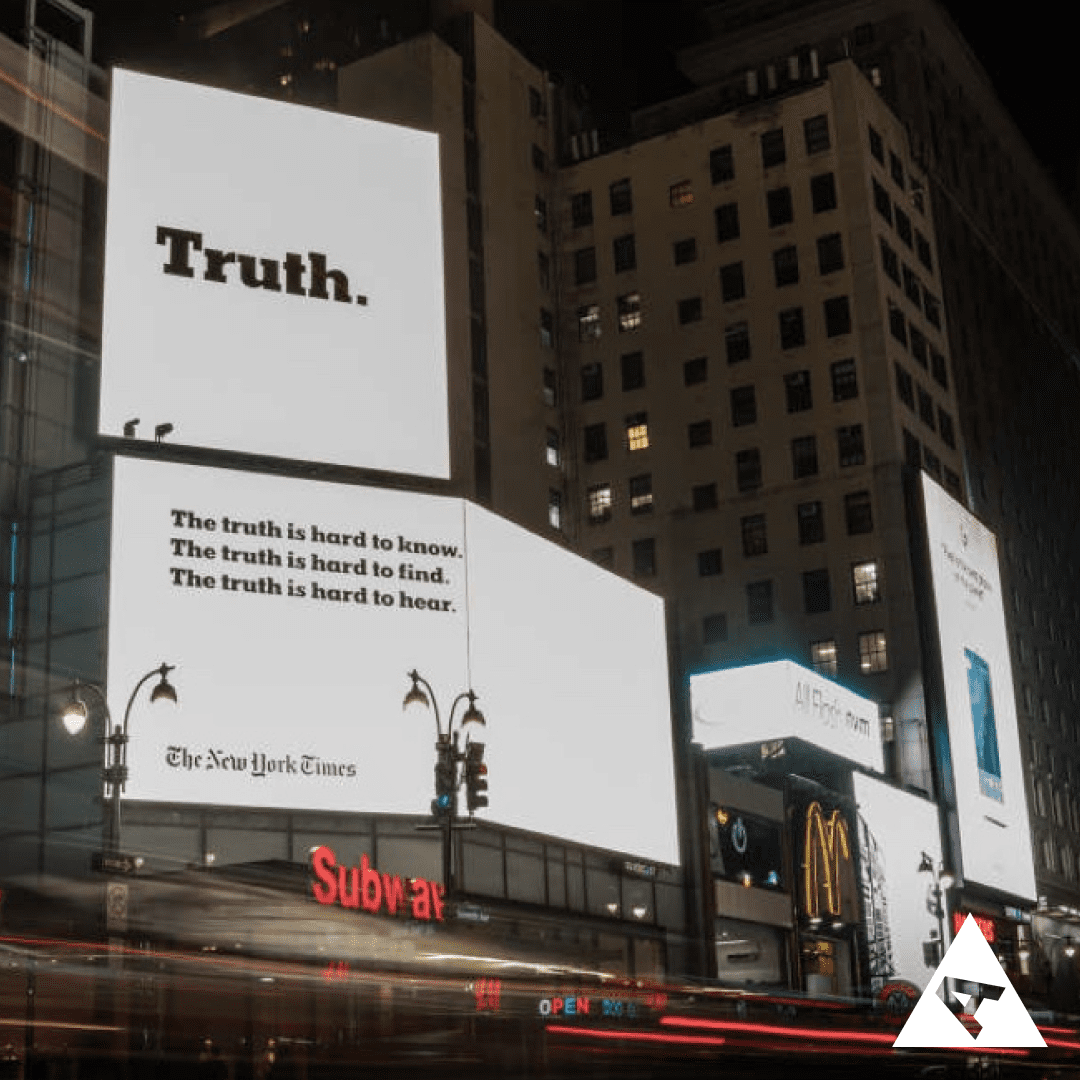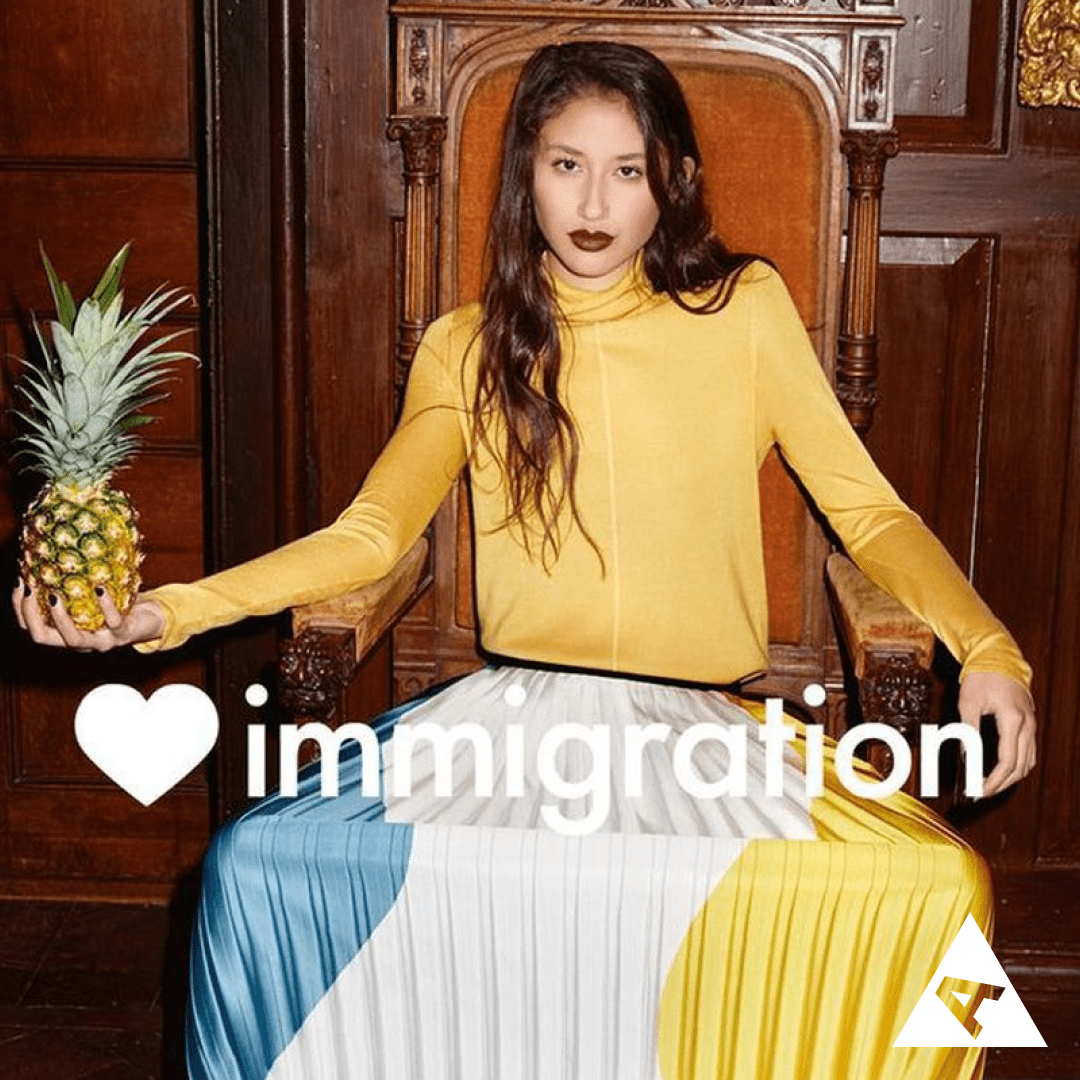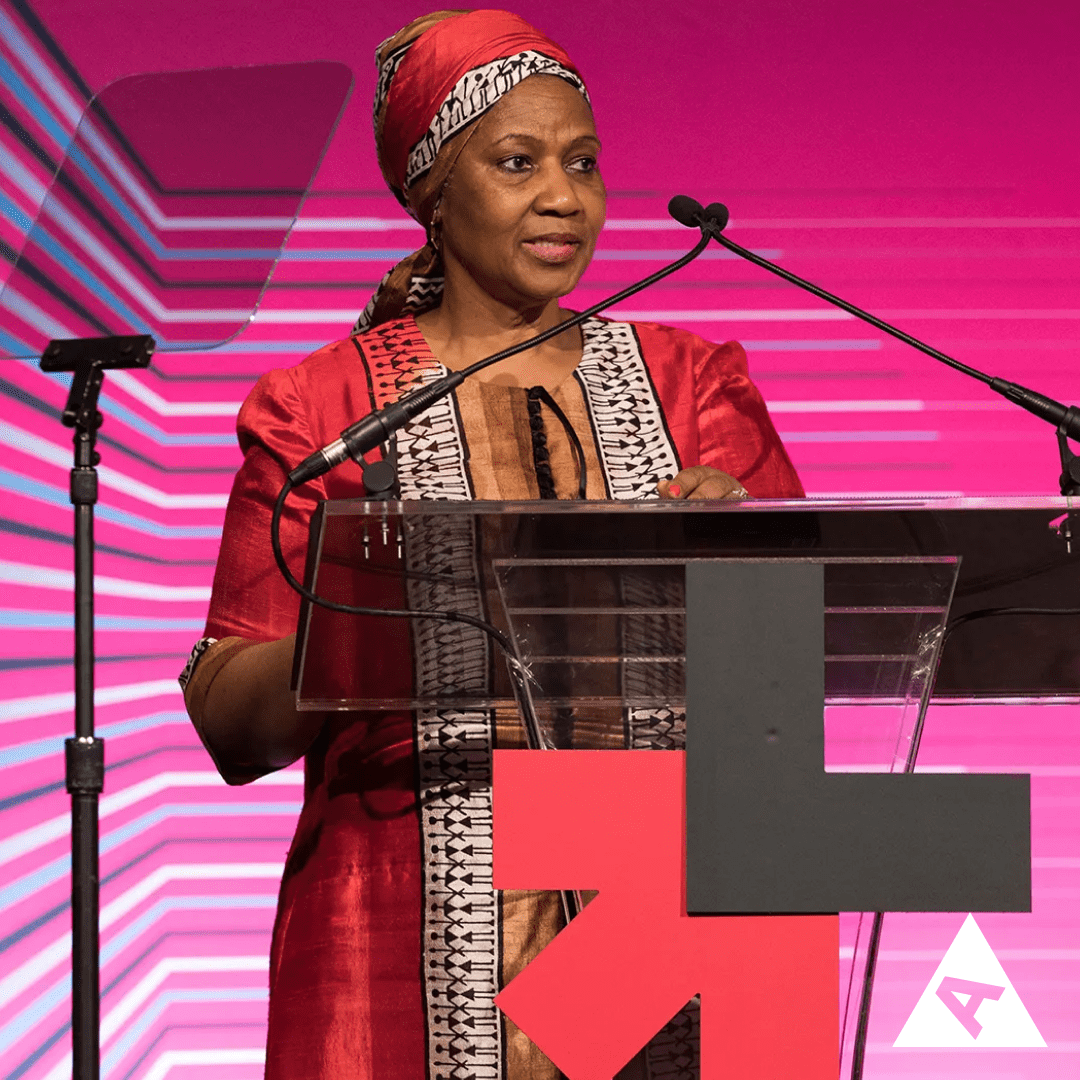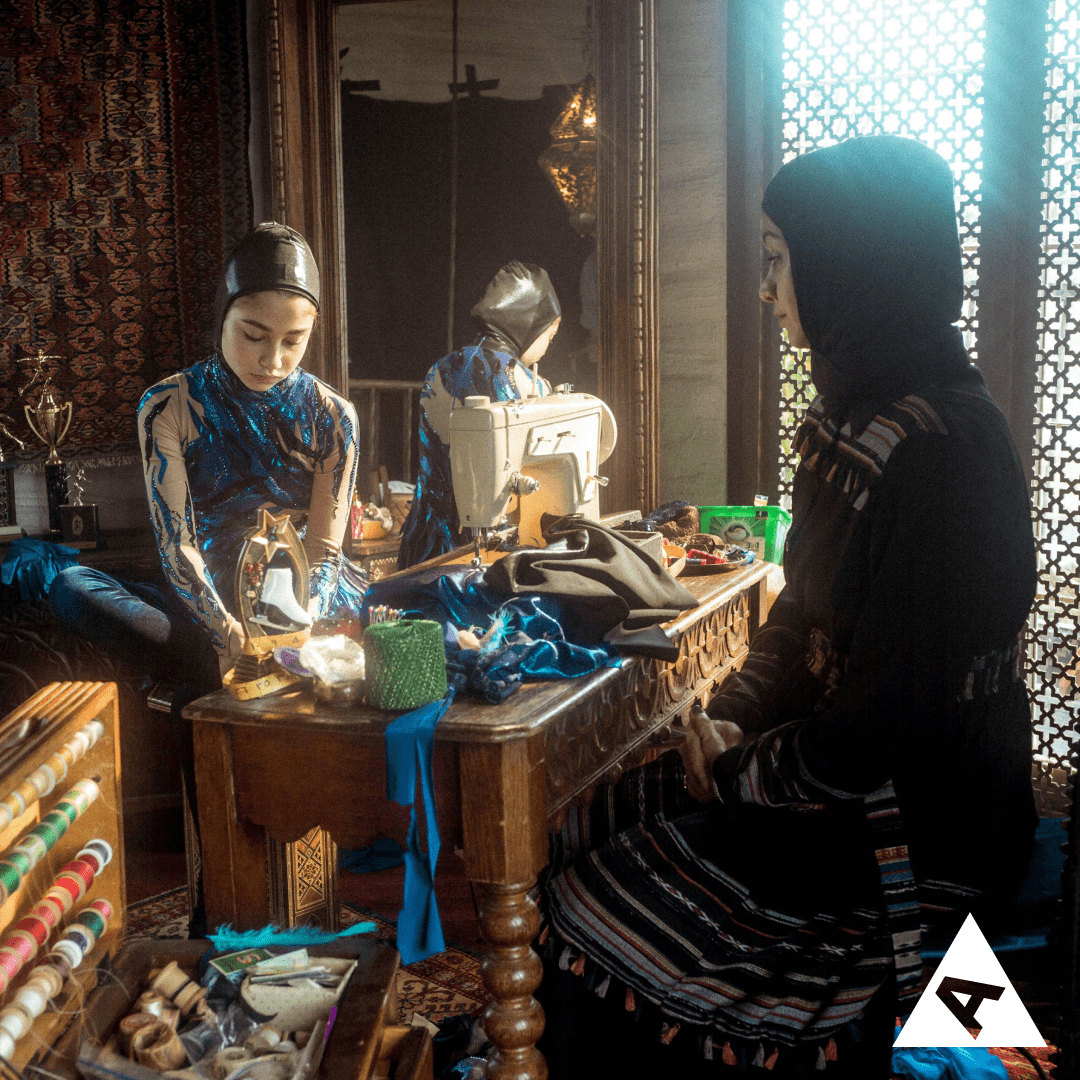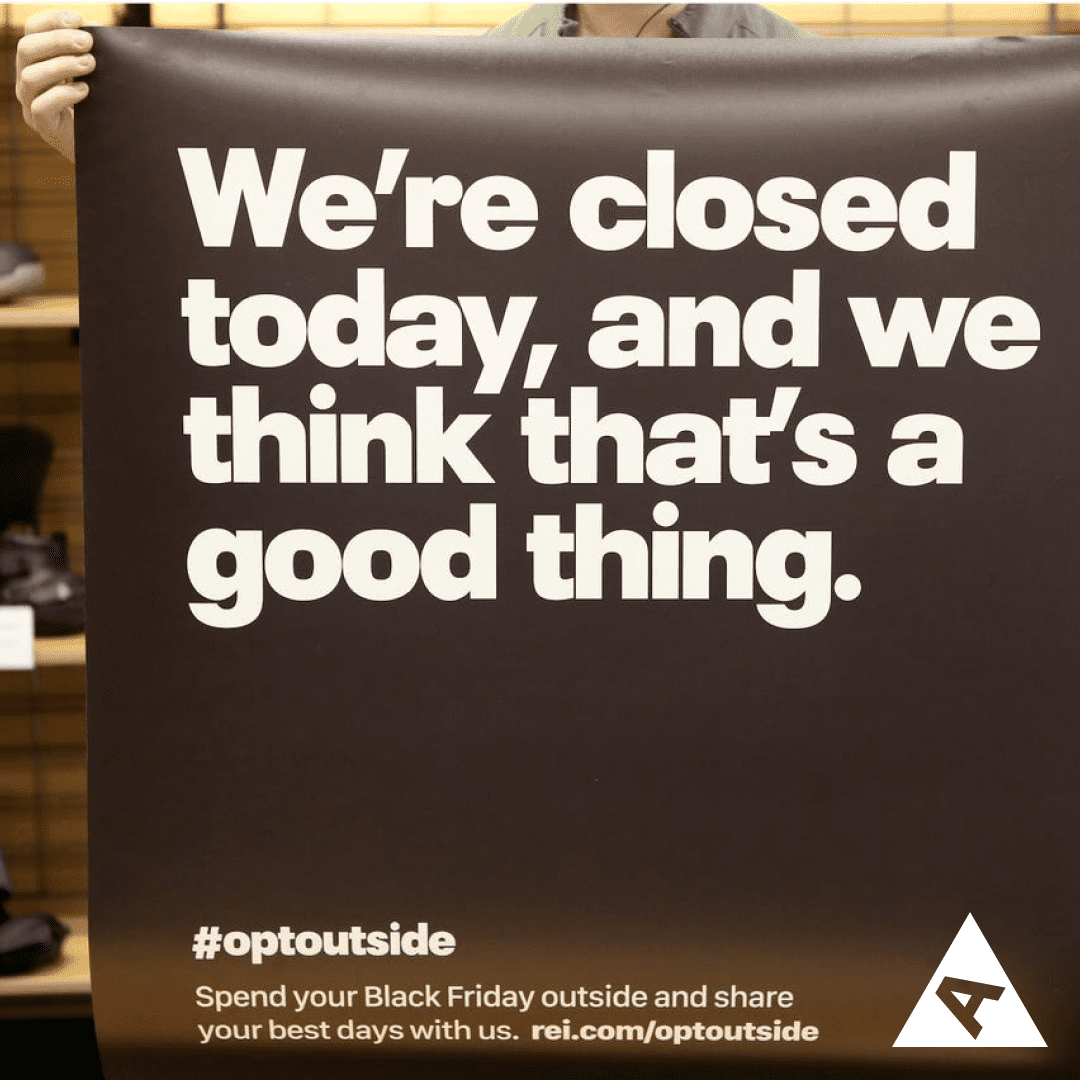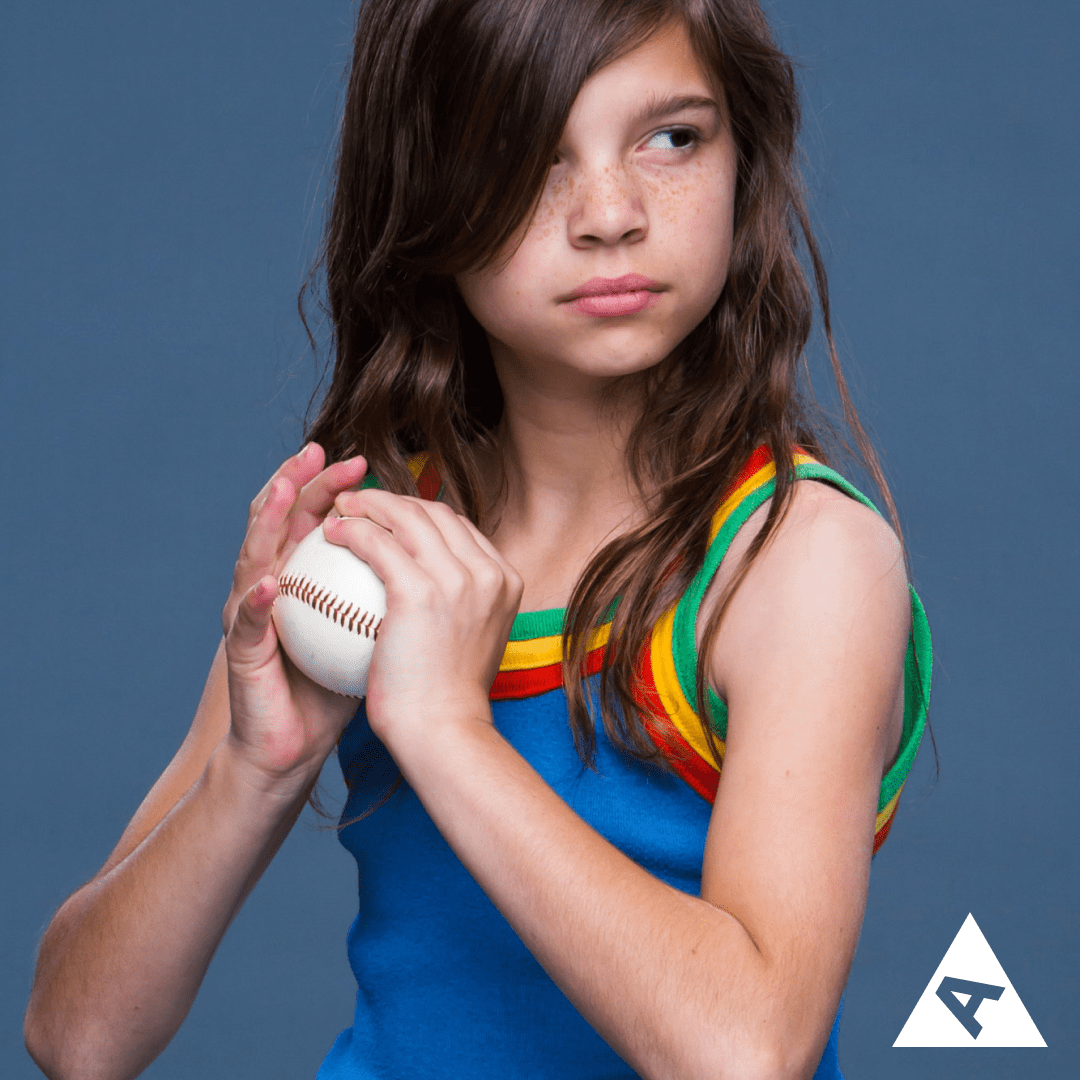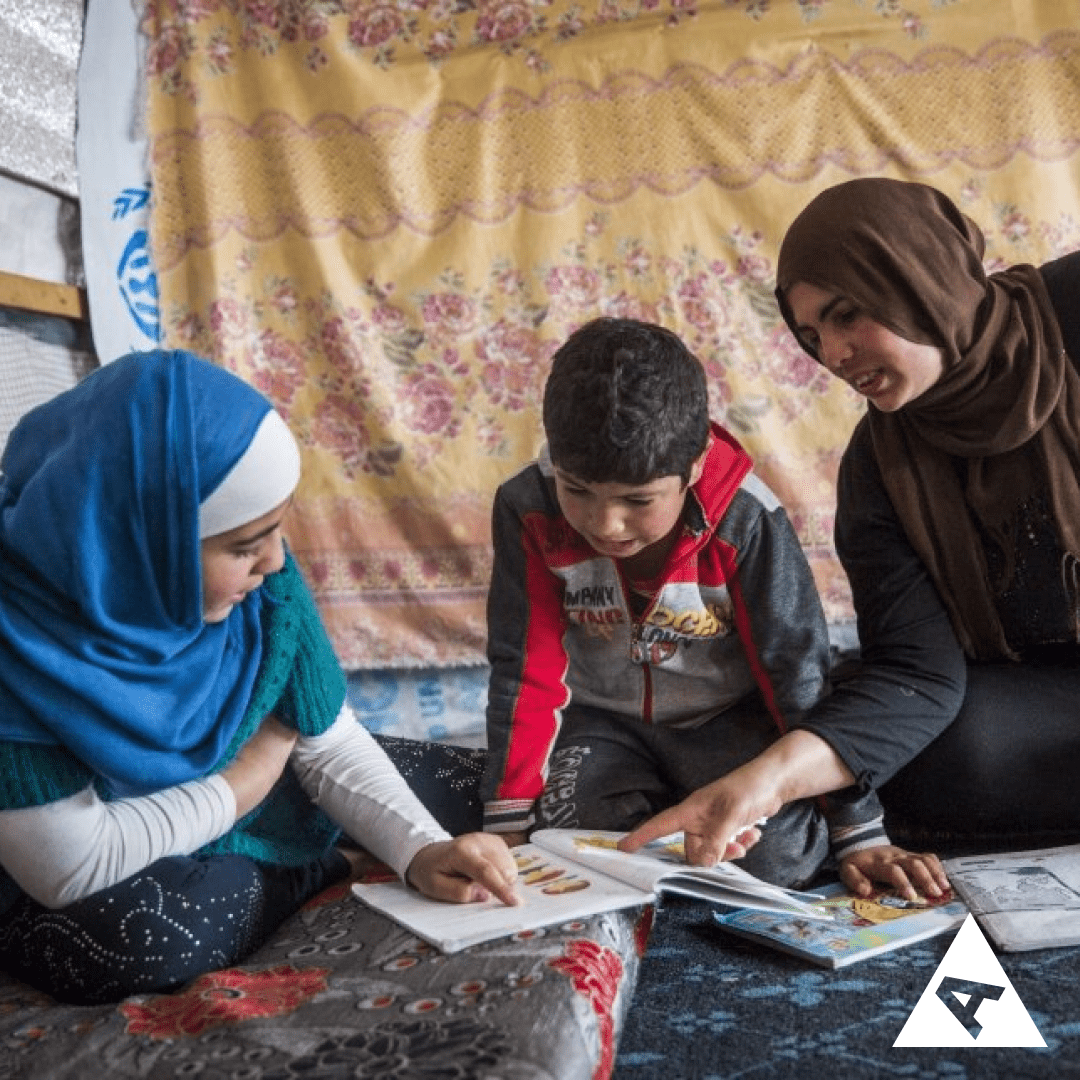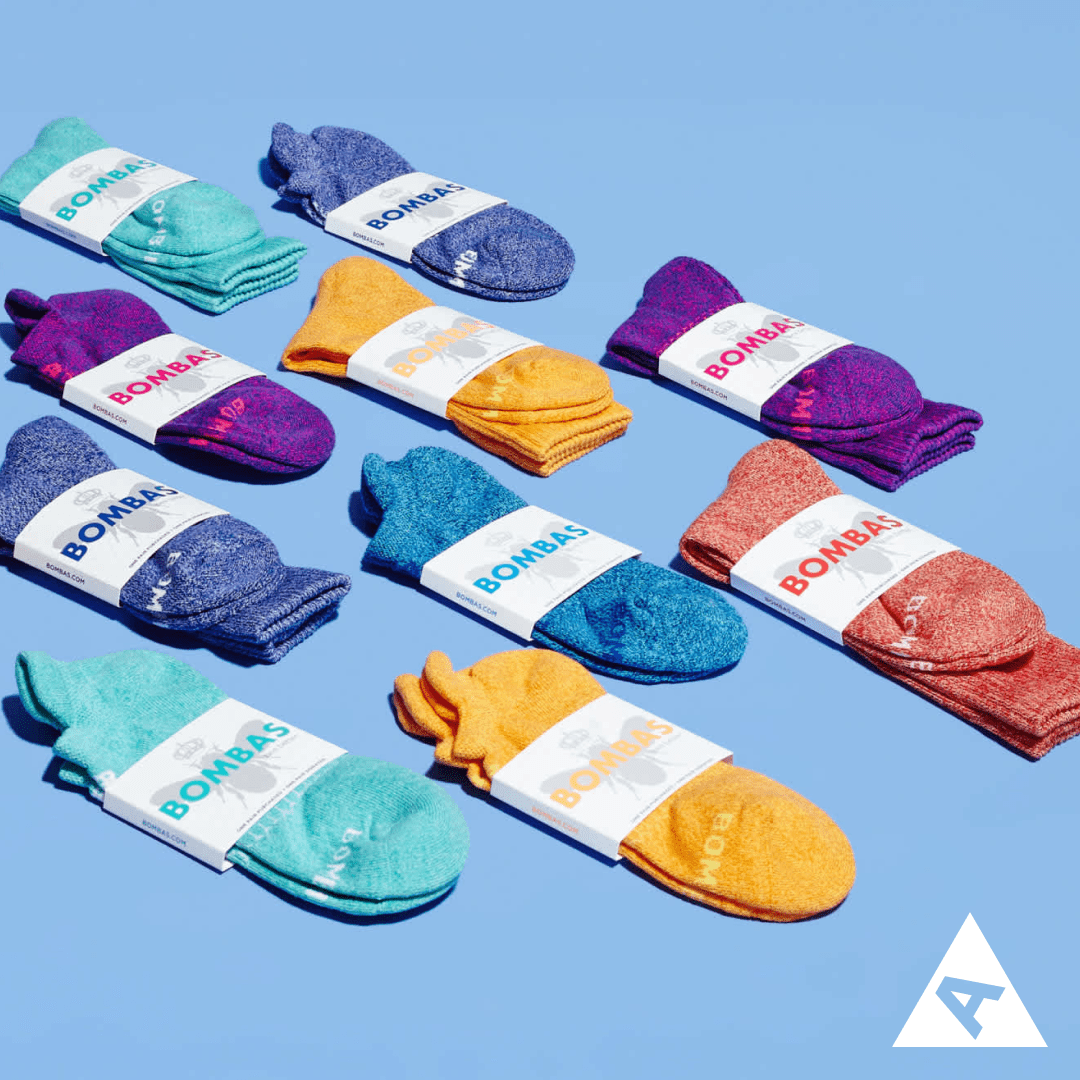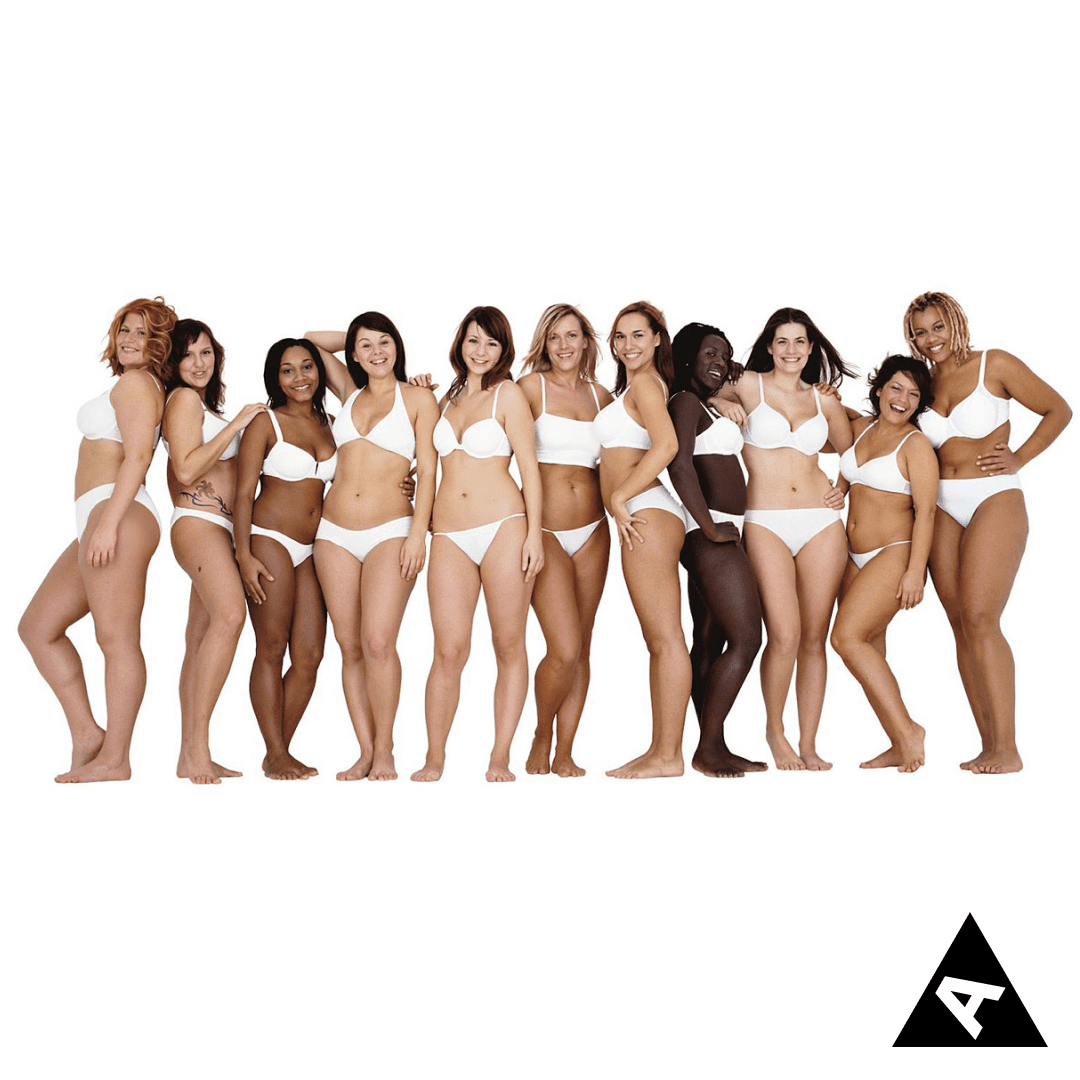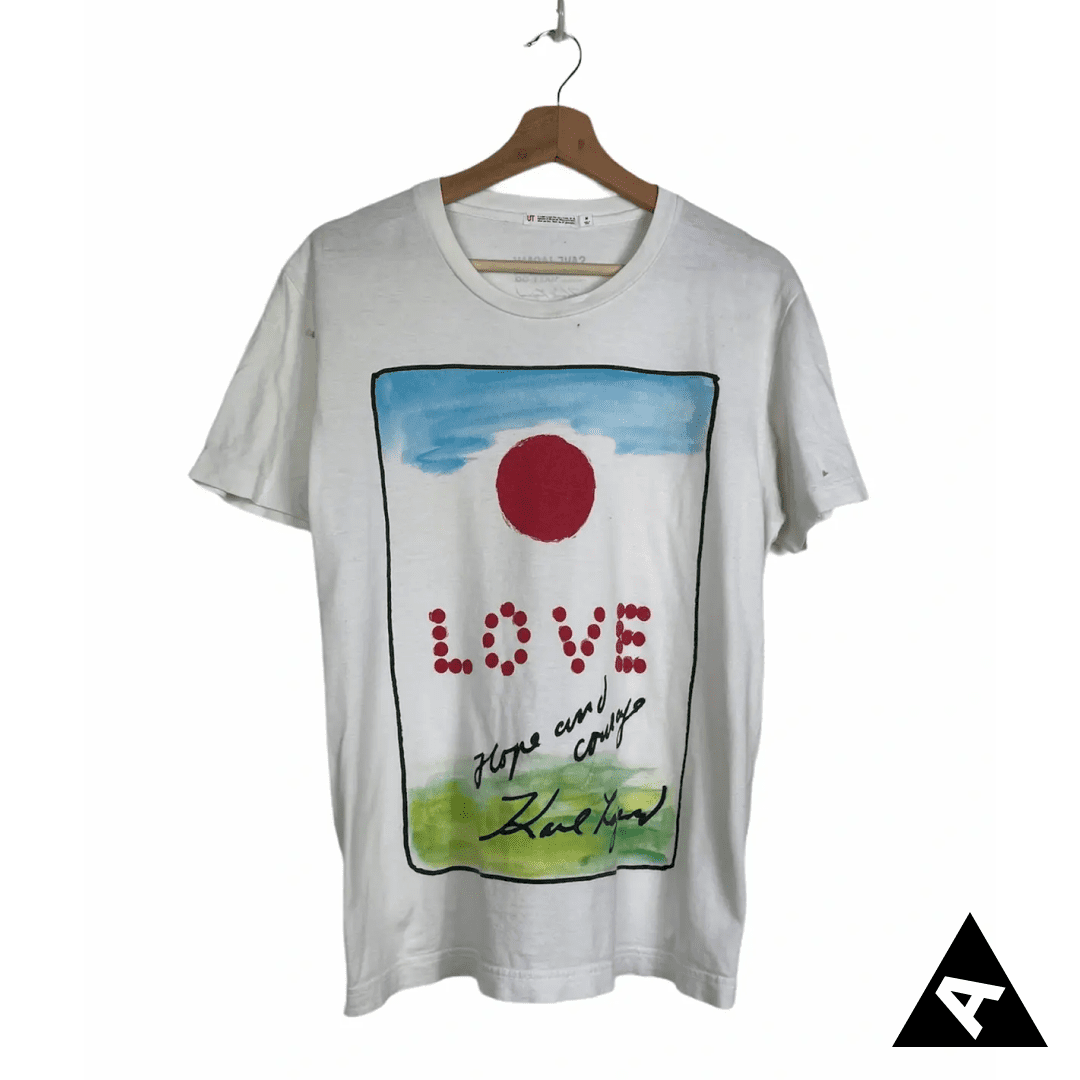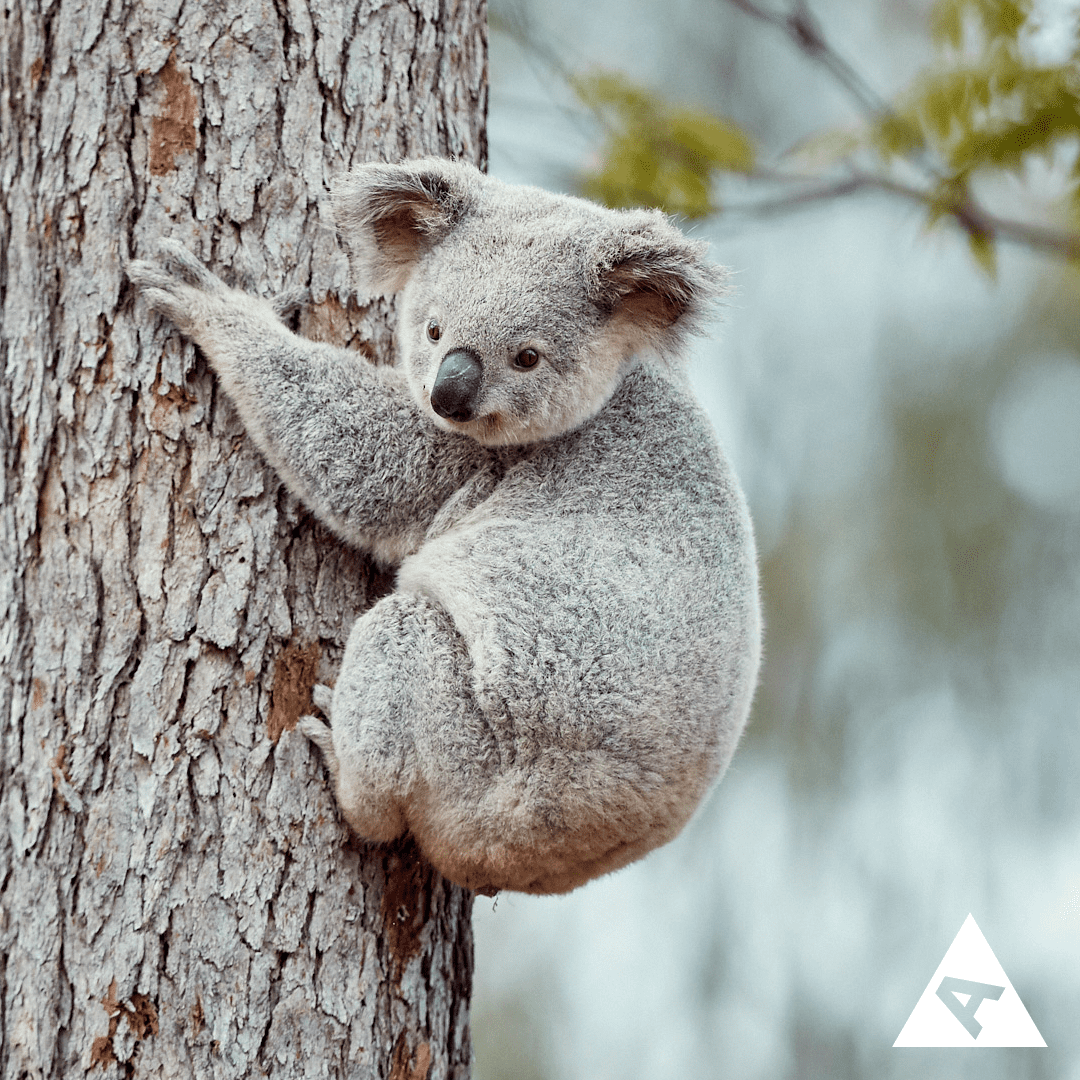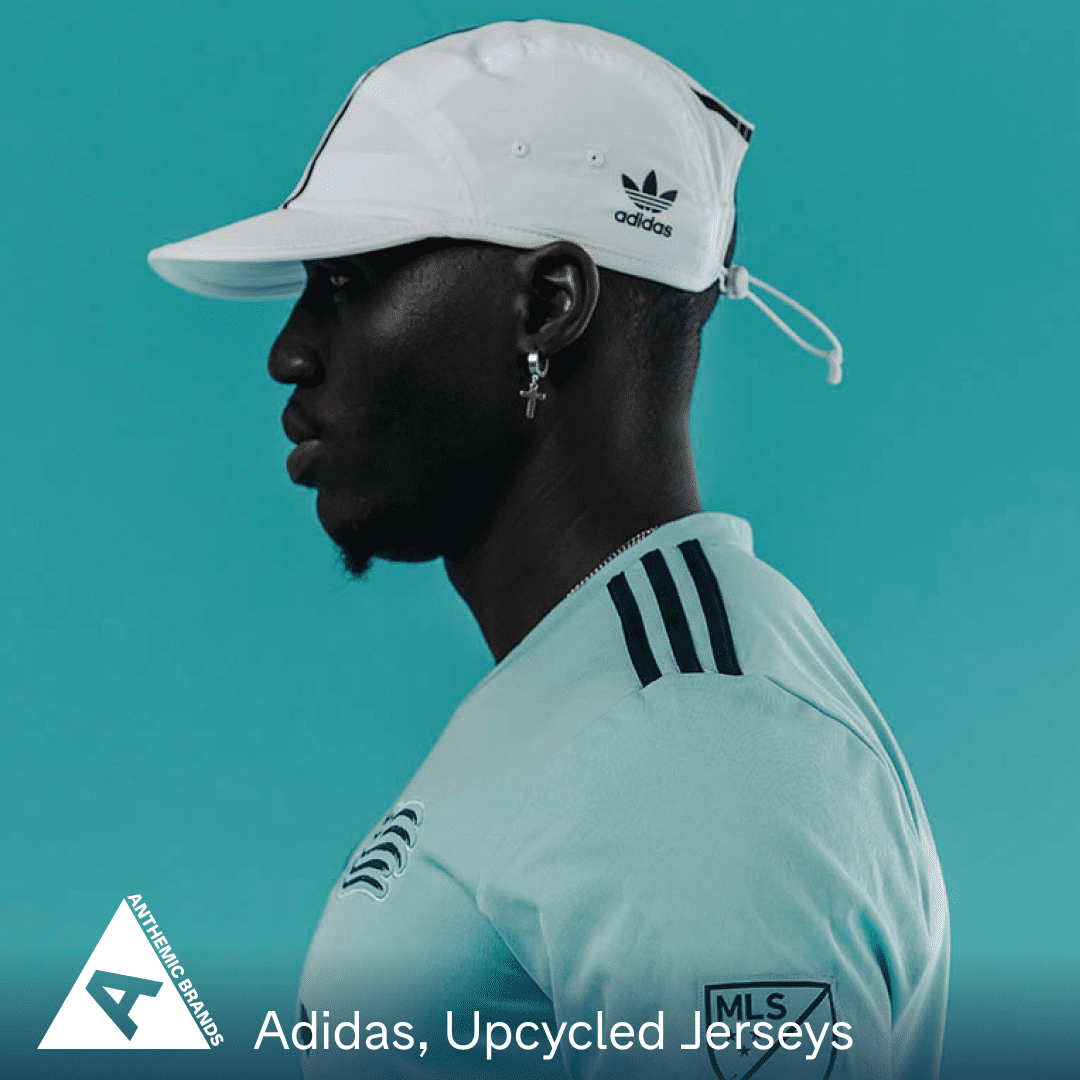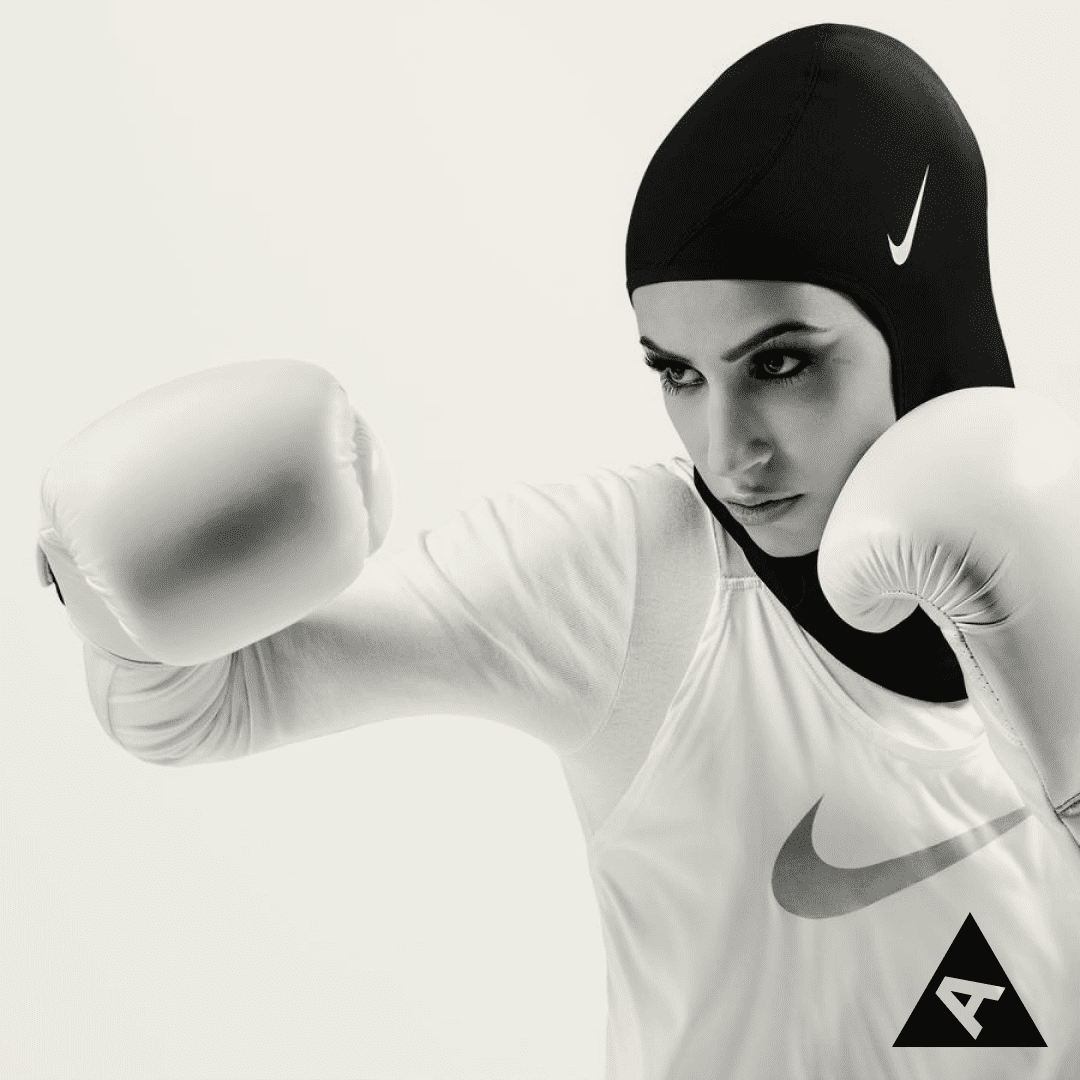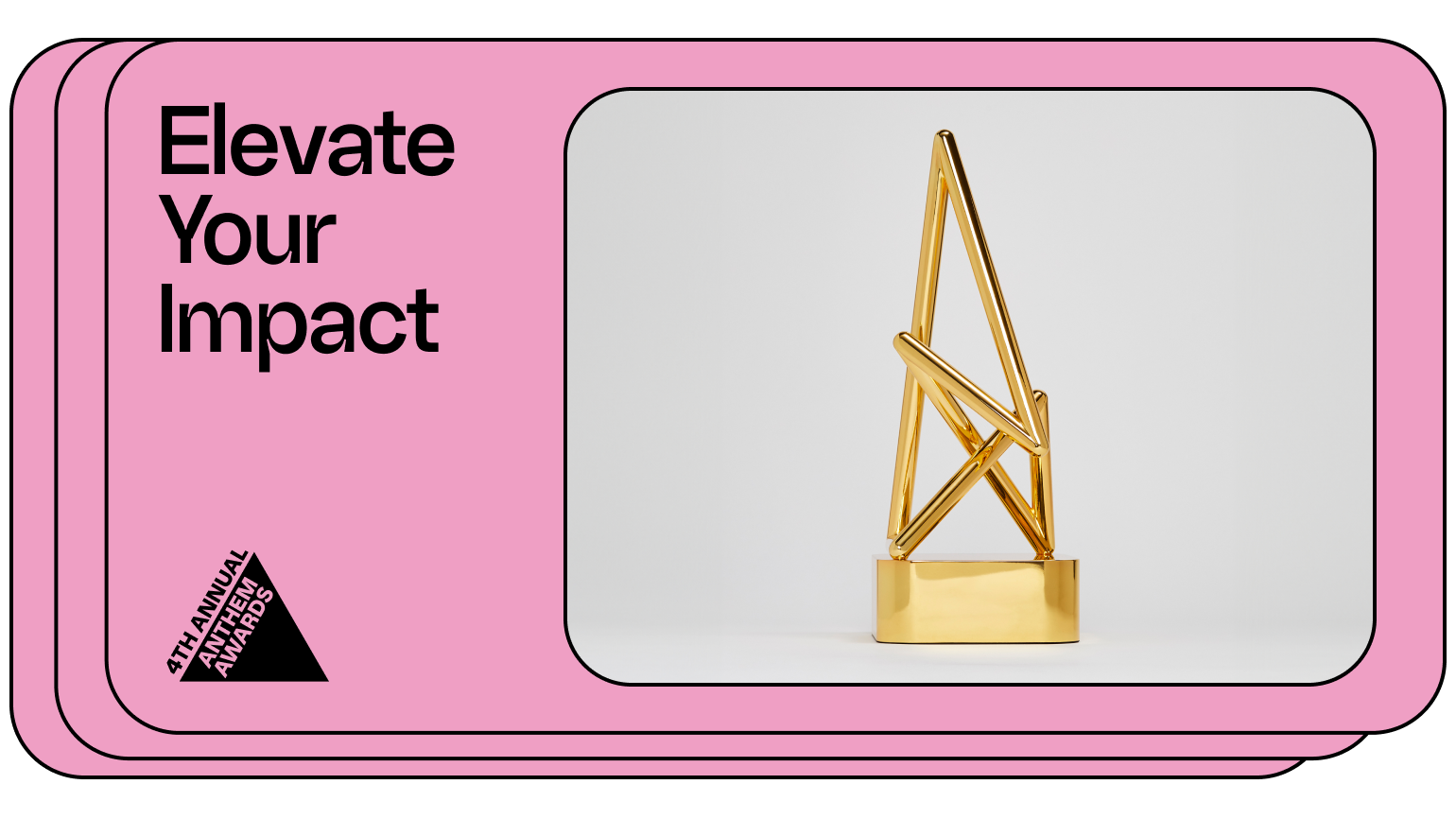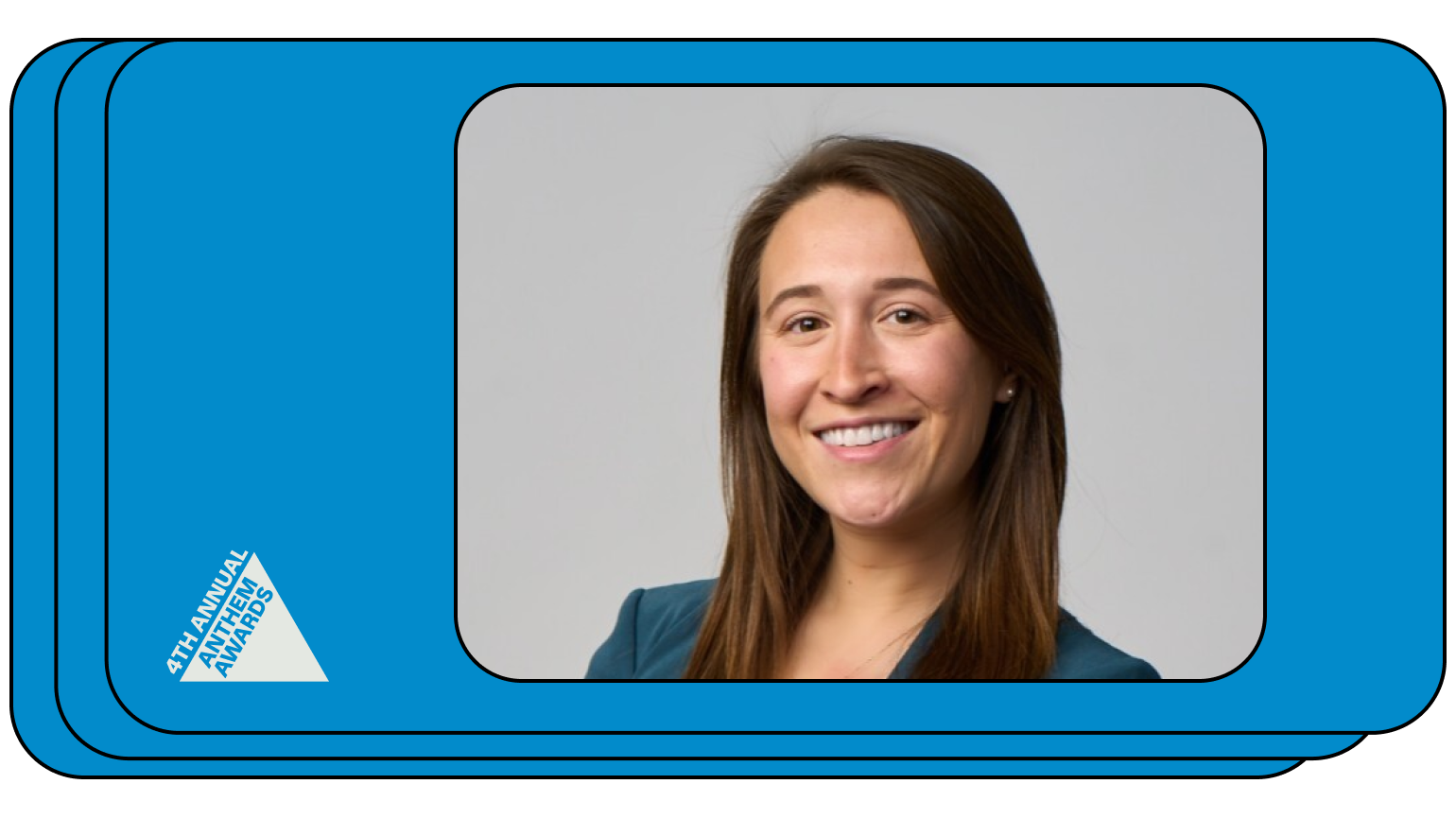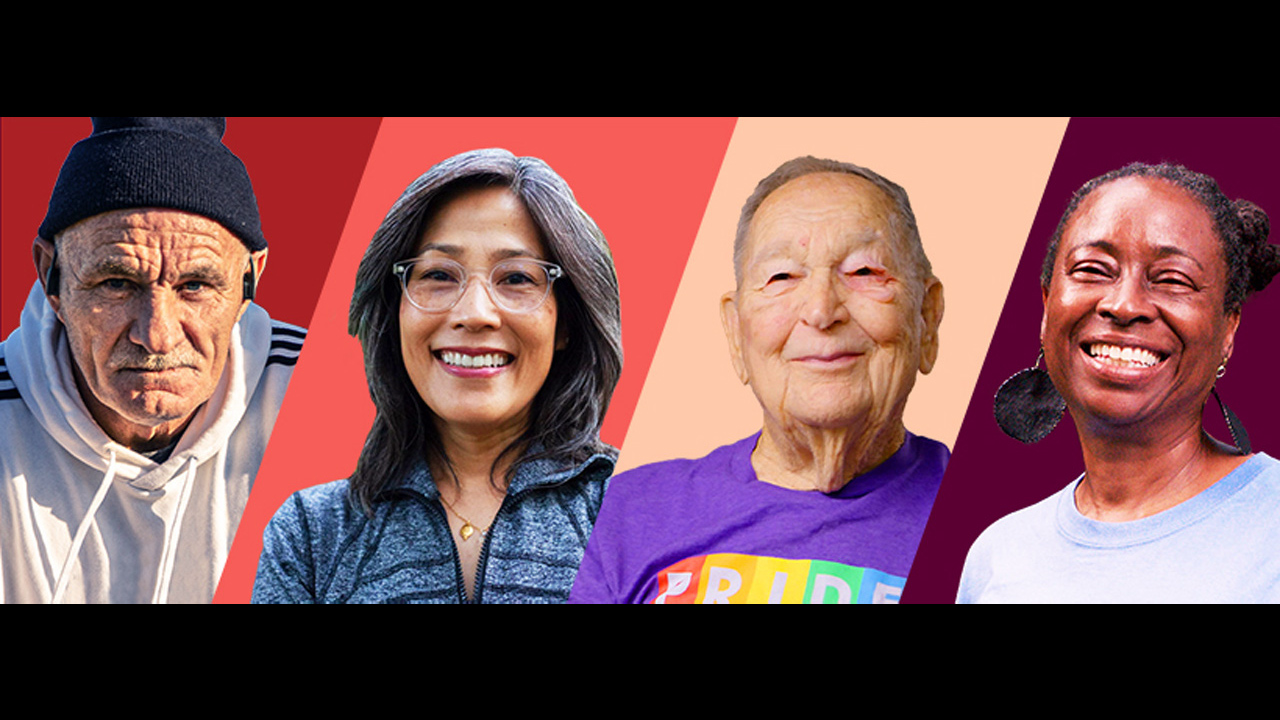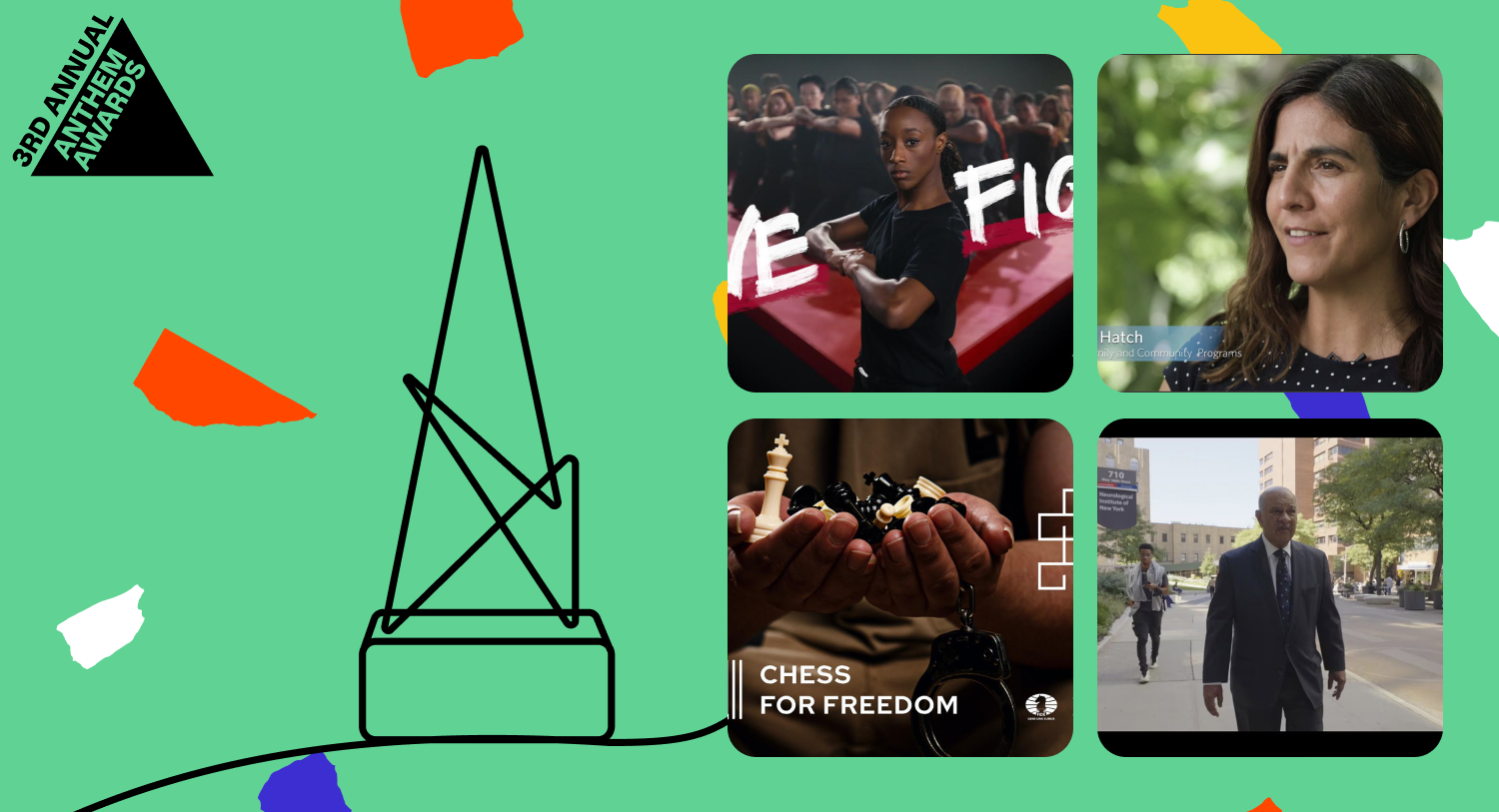Anthemic Brands
The Anthem Awards honors people, companies and organizations creating purpose & mission-driven work worldwide. To celebrate the inaugural season, we’re featuring groundbreaking campaigns, brands and creative agencies from around the world and over the years that have been centering diverse causes and building innovating solutions to global issues through their business practices, products, services and platforms.
[Image Credit: Nike’s, Purpose]
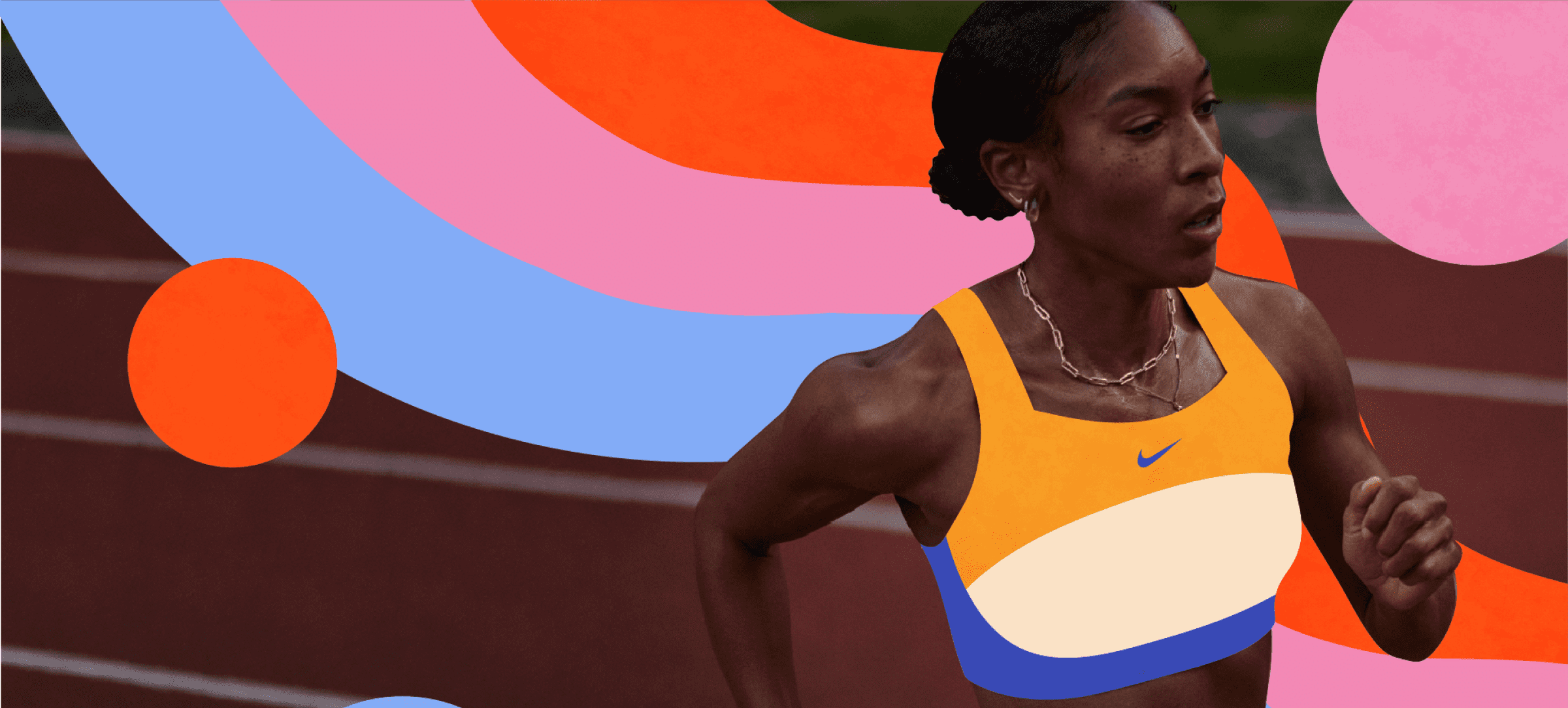
Patagonia – Don’t Buy This Jacket
Patagonia has put social impact at the core of their brand mission and values from the start, and their iconic Don’t Buy This Jacket campaign demonstrates how brands can use their platform to make an impact — or better yet, to help reduce our impact. This 2011 ad ran in the New York Times on Black Friday, making a lasting impression for its bold message addressing the issue of consumerism head on and asking readers to take the Common Threads Initiative pledge to reduce, repair, reuse, recycle, and reimagine a world where we take only what nature can replace.
Ben & Jerry’s – Influencing Change
Ben & Jerry’s believes that business has a responsibility and a unique opportunity to be a powerful lever of change in the world. For decades, this purpose-driven brand from Vermont, U.S. has been unwavering in their commitment to socially responsible causes with values-centered work that’s memorable, authentic, and most of all, followed up by action.
Nike – Dream Crazy
Nike‘s “Dream Crazy” campaign was created by Wieden + Kennedy to be a motivational call inspired by athletes who leverage the power of sport to move the world forward. The advert surprised the public by amplifying Colin Kaepernick‘s movement of quiet activism against police brutality and systemic racism and using Nike’s platform to help raise awareness of social injustice.
The New York Times – The Truth Is
The New York Times’ “The Truth Is” series, created with Droga5, came at a time when anti-press rhetoric was on the rise in the U.S. and news organizations were depleting. The campaign showed the complexity of truth and how it’s reported, while also taking people behind the scenes and on the front lines to help show the lengths reporters go to in uncovering the truth. This two-part approach hit on a nerve that’s both topical and timeless, cutting through the noise to remind the public that the New York Times’ integrity makes it more than just a news organization.
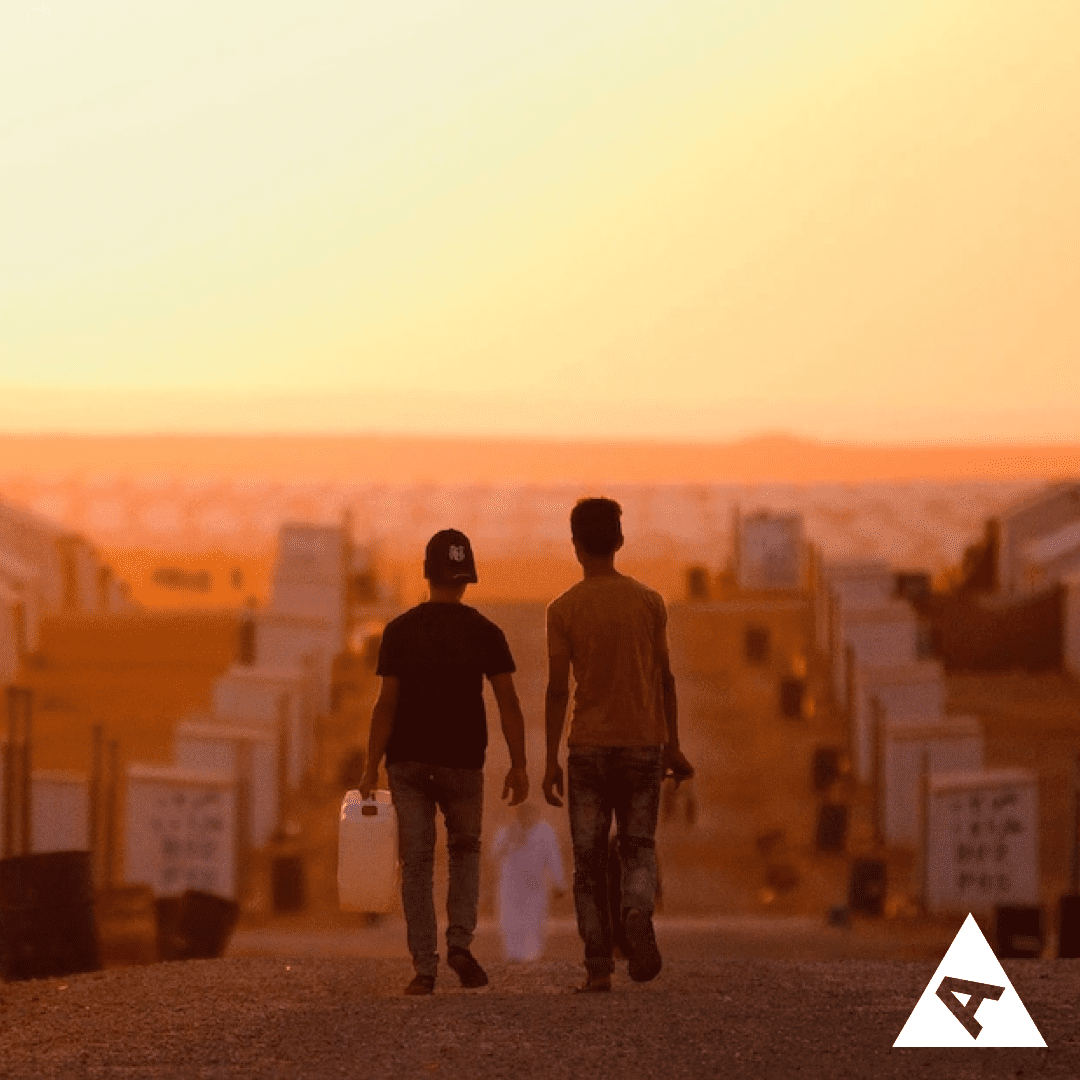
Ikea – Brighter Lives for Refugees
Ikea’s Brighter Lives for Refugees initiative aimed to distribute solar-powered lanterns and install street lamps for refugee families living in camps in Asia, Africa and the Middle East. For every LED light bulb the company sold during the campaign in 2016, the Ikea Foundation donated $1.30 to the United Nations High Commission for Refugees (UNHCR), ultimately raising over $10m. Refugee camps previously off the grid with no power or electricity, where families had to use dangerous candles, toxic kerosene lamps or non-renewable, battery-powered torches to illuminate living spaces, were provided light and renewable energy sources, making it possible for children to study and adults to gather socially after dark.
Greenpeace – Everything is NOT Awesome
In 2014, Greenpeace launched a viral campaign putting pressure on LEGO to end a partnership with Shell that dated back to the 1960s. Directed by London-based creative agency Don’t Panic, the “Everything is NOT Awesome” YouTube short used around 120kg (or 265 lbs) of LEGO bricks to build models an oil-stricken Arctic, imagining the damage an oil spill would do to the precious ecosystem and aimed during a time when Shell bid to renew its offshore drilling, after it was revealed they were working to dilute environmental regulations in Arctic waters.
Jigsaw – Heart Immigration
Inspired by their motto “Beautifully British since 1970”, fashion brand Jigsaw launched a Heart Immigration campaign that challenged the idea that anything, or anyone, is completely and exclusively British. This was following Brexit and the claims that so-called “British values” were being lost through the movement of people between countries, and Jigsaw wanted to affirm that the brand would not be what it is without immigration. “As a clothing brand, we couldn’t do what we do if people weren’t free to move around. Without immigration, we’d be selling potato sacks.”
UN Women – HeForShe
Since its launch in 2014, HeForShe has worked with participants, companies, and corporate champions to build a fairer, safer and more rewarding global culture. The initiative was one of the first of its kind to make the case for why abolishing inequality and cisheteropatriarchal gender norms serves people across the gender spectrum, and has been committed to transforming a vision of equity into real-world impact that keeps growing after almost seven years.
Procter & Gamble – Love Over Bias
Love Over Bias used the transformative power of a mother’s unconditional love as a shining example for how we can hold each other up and champion one another, no matter what. The landmark ad was equal parts challenging and tender, timely and necessary, and shot by Alma Har’el — marking the first time that a woman directed a Procter & Gamble Olympics campaign.
REI – Opt Outside
In 2015, while other retailers were thinking of ways to get more shoppers into their stores for Black Friday, REI pivoted with a powerful, public call for everyone to #OptOutside. During the biggest shopping event of the year in the U.S., REI closed all its stores, processed no online payments and payed its tens of thousands of employees to get outside with their friends and families. “As a single company, our impact is limited, but as a community, we can drive change that powers meaningful action beyond our walls,” explained CEO Eric Artz.
Always – Like a Girl
Always kicked off an iconic campaign in 2014 that has inspired our culture to dismantle a phrase that was proven to be harmful to girls’ self confidence and changing the conversation about what it means to run, throw and do pretty much any activity “like a girl.” Since its launch, #LikeAGirl has grown into a powerful movement, with Always reporting that more girls now have a 3x higher positive association with the phrase — increased from 19% to 76%, with 94% agreeing that the campaign has encouraged girls to be more confident.
Airbnb – #WeAccept
When the U.S. government announced a travel ban on several countries with a Muslim majority, Airbnb responded with #WeAccept, a commitment to donating $4 million to the International Rescue Committee and provide housing relief to 100,000 people over the course of five years. “We’ll start with refugees, disaster survivors, and relief workers, though we want to accommodate many more types of displaced people over time,” the company explained. “To help people around the world facing displacement, we’ll work with our community of hosts to find not just a place to stay, but also a place to feel connected, respected, and a part of a community again.”
Bombas
Socks are the number 1 most requested item in shelters. Randy Goldberg and David Heath co-founded Bombas to address this need through a one-for-one model; for every pair of socks Bombas sells, they donate another pair to a shelter. Their company is built on the mission to support unhoused, in-need, and at-risk communities and bring awareness to the housing crisis in the United States, and since launching in 2013 they’re evolved their initiatives to go deeper into the community. “What we’re seeing is this corporate responsibility trend,” he said. “For millennials and generations coming after ours, it’s not a trend, it’s an actual expectation. They care so much more about the practices of the business behind the product.”
Dove – Real Beauty Campaign
In 2004, Dove sparked a global conversation with their Campaign for Real Beauty. The message behind the historic project was that physical appearance should be transformed from a source of anxiety to a source of confidence, and Dove targeted unrealistic, unattainable images as the root of restrictions on the definition of beauty.
Uniqlo – Save Japan!
Soon after the Great East Japan Earthquake that struck on March 11, 2011, Uniqlo began actively working with communities in the Tohoku Region that were most affected by the disaster. Their multi-phase approach involved donating funds and relief supplies, sending volunteer staff to distribute clothes to people in need, partnering with five NGOs, and opening new stores in some of the hardest-hit communities like Miyagi, Iwate, and Fukushima, to promote financial independence, job creation and long-term economic recovery in the Tohoku region.
NRMA Insurance – Help Is Who We Are
From tiny moments to major events, NRMA Insurance’s Help Is Who We Are campaign payed tribute to the role that help – and their company – has played in defining a national identity. Launched in 2018, the first television commercial celebrated the everyday Australians who pitch in and help each other, capturing the essence of community with scenes including a family fleeing a storm, a surfer helping a man in the surf, NRMA helping a broken down car, and prominently featuring a firefighter rescuing a koala in a bushfire. The campaign signaled a return to the brand’s iconic heritage as a beacon of help, and showcases its longstanding commitment to helping Australians.
Adidas – Upcycled Jerseys
Adidas and Parley started teaming up in 2015 to help end plastic waste through the power of sport. The partnership started with Adidas Parley X shoes that were made predominantly from discarded fishing nets and single use water bottles, but grew into an initiative and an ongoing collection. Adidas x Parley made headlines for designing upcycled jerseys for all 23 MLS teams to wear on Earth Day in 2018 and eco-friendly jerseys for all players to wear during the NHL’s 2019 All-Star game. “We believe that we can invent our way out of this mess,” said Gutsch. “Adidas Parley is not a campaign. This is a true partnership where we create together, we invent together and we invite others in.”
Nike – Pro Hijab
Launched in 2017, the Nike Pro Hijab specifically engineered for Muslim athletes was a major step towards inclusivity in the sportswear world, and for many hijabi athletes, so much more than a performance garment. “It inspires me to reach greater heights and to run farther distances,” said Manal Rostom who completed the New York Marathon in the Nike Pro Hijab. “And I believe it’s going to inspire girls worldwide to follow their passion for sport.”
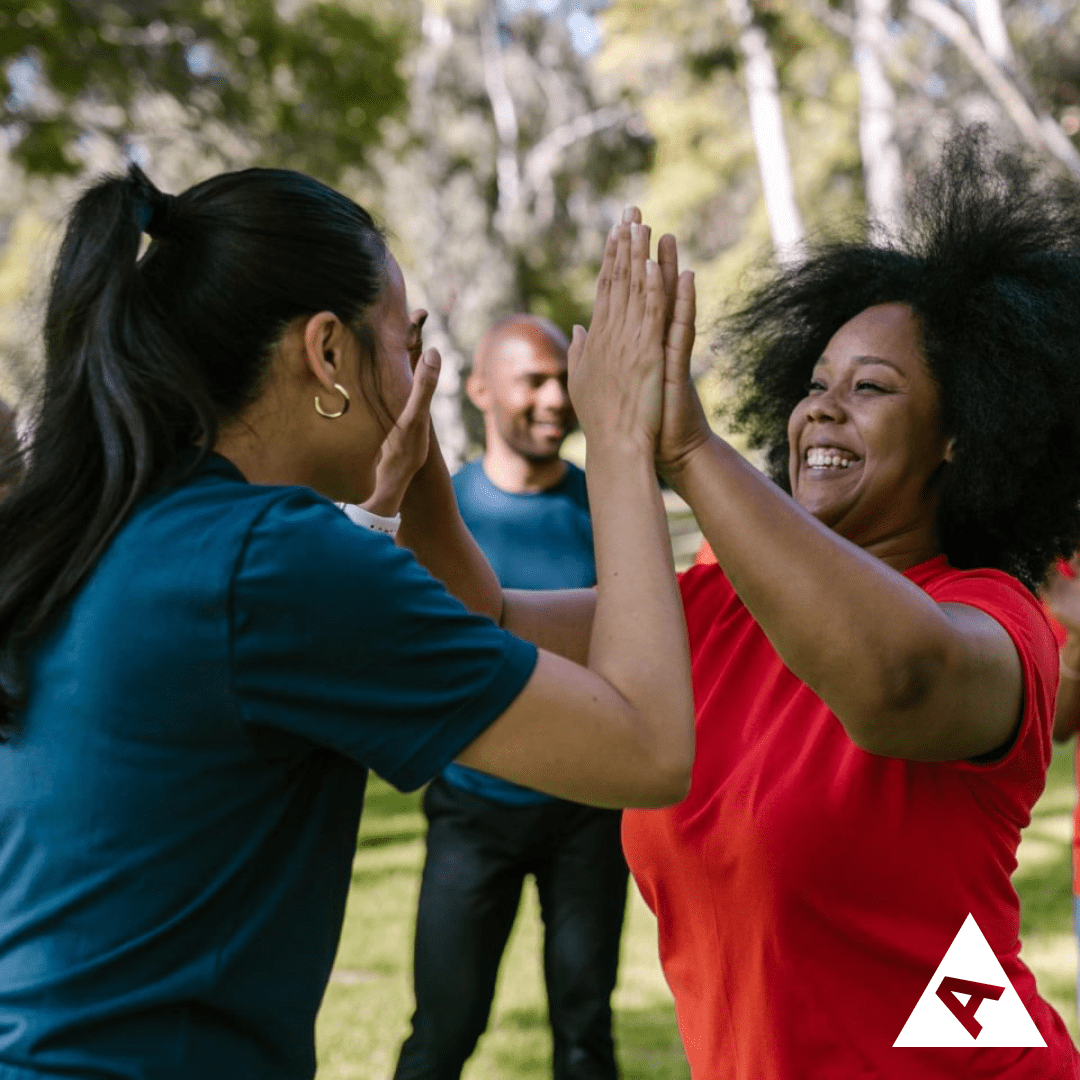
Pledge 1% – Salesforce
Salesforce founder and CEO Marc Benioff set out to use the company’s success for good, deciding early on it would be based on a 1-1-1- model: 1% of the company’s equity, 1% of its product, and 1% of employees’ time would be donated back to the community. This approach led to the development of Pledge 1%, a model of “integrated corporate philanthropy” in which businesses set aside 1 percent of annual profits for charitable causes. Salesforce is now one of the biggest companies in customer management software and has been able to use its influence to inspire other companies around the world to take a similar approach to philanthropy.
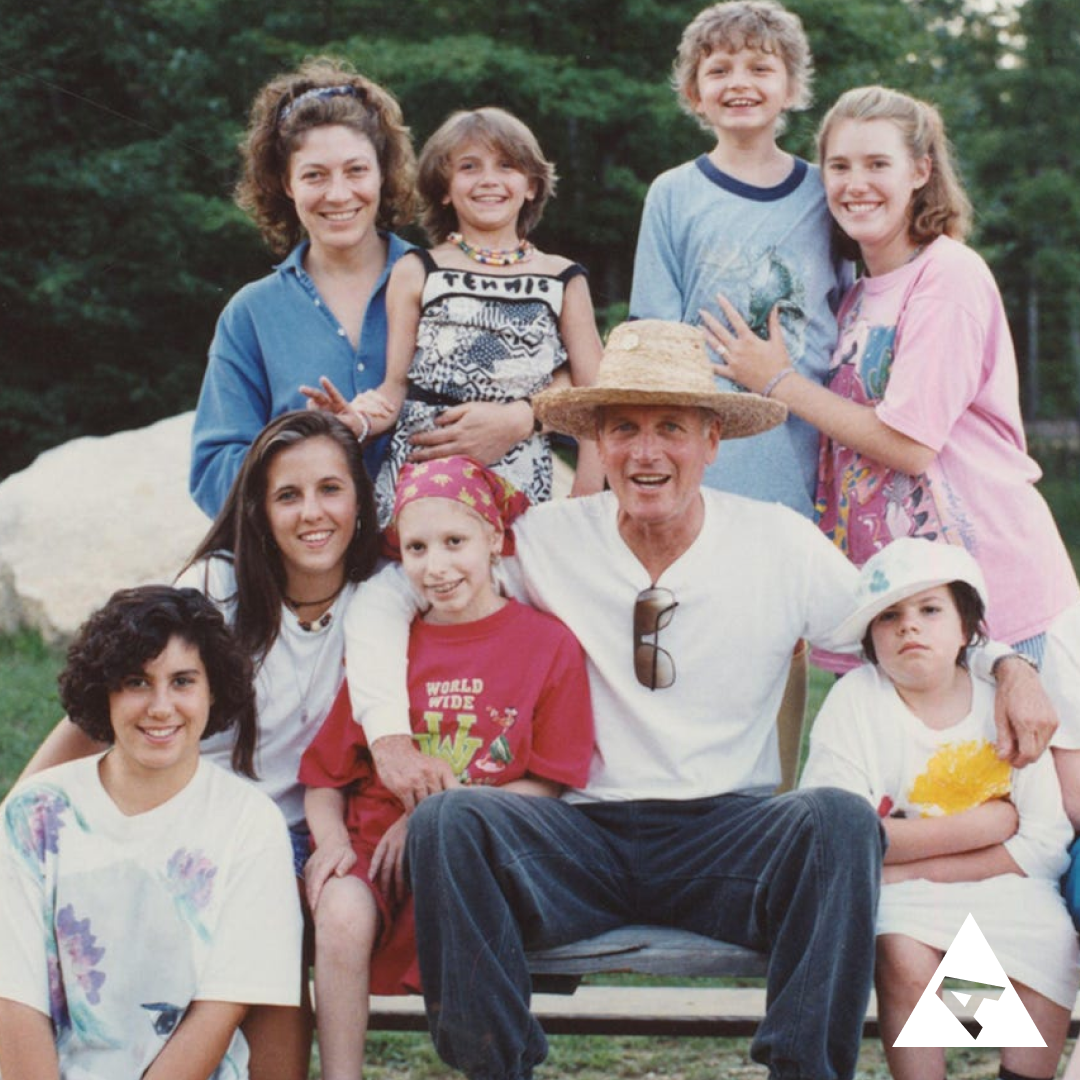
Newman’s Own
Established in 1982 by famed actor Paul Newman and author AE Hochtner, the company donates 100 percent of its after-tax profits to a variety of charitable organizations through its sister organization, the Newman’s Own Foundation. Since then, Newman’s Own has donated more than half a billion dollars to charitable causes, ranging from veterans causes to building rural schools, and on average helps around 600 charities each year. Newman recognized the incredible fortune he had being a legendary actor but felt that sharing his good fortune with others was “just the right thing to do.”
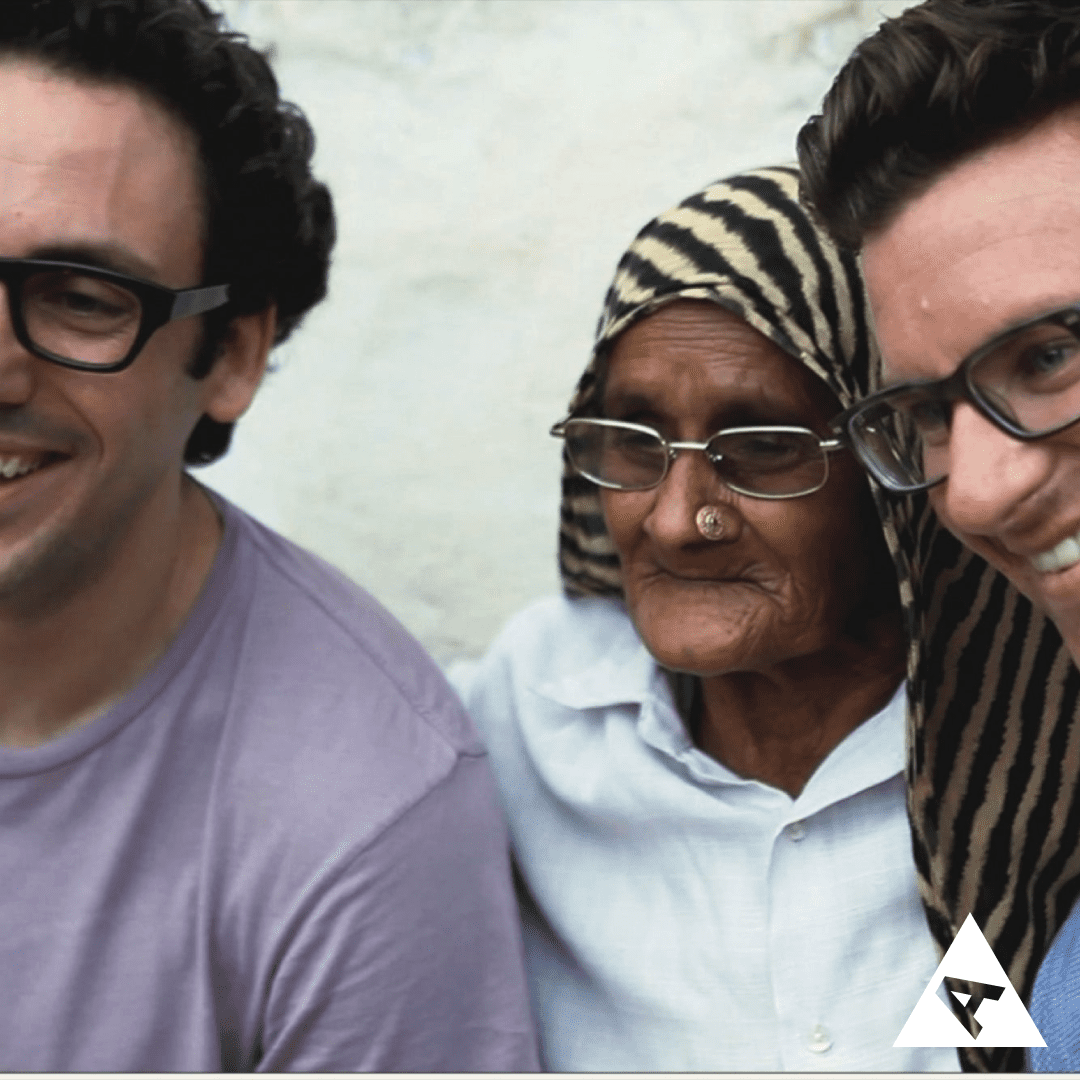
Warby Parker
Founded in 2010, Warby Parker’s business model is well-known – five sets of frames are mailed to you to try on before you buy – and this approach has helped them rise to the top of the game. But customers are also drawn to one of the company’s foundational principles. The Buy a Pair, Give a Pair program works with partner organizations to provide one pair of glasses to someone in need for every pair the company sells. So far, these donations have totaled to more than 8 million pairs of glasses around the world.

Eileen Fisher, Waste No More Campaign
The company’s “Waste No More” project showcases art made from retired clothing, a traveling exhibition designed to educate viewers about the enormity of waste in the fashion industry and highlight the company’s program of buying clothing back to give it a second life. The company as a whole has tried to create a balance in the production/destruction cycle highlighted by the campaign. The company’s Renew take-back program buys back customers’ gently worn clothes to be cleaned and resold, and converts clothing with significantly more into artwork, pillows, and wall hangings. These programs have helped them to take back 1.5 million pieces of clothes since the company was founded, demonstrating that consumers are interested in minimizing their environmental footprint. Other major clothing companies have adopted similar programs, creating a network of clothing reuse who ambitions and possibilities are captured by the works in the Waste No More Campaign.


